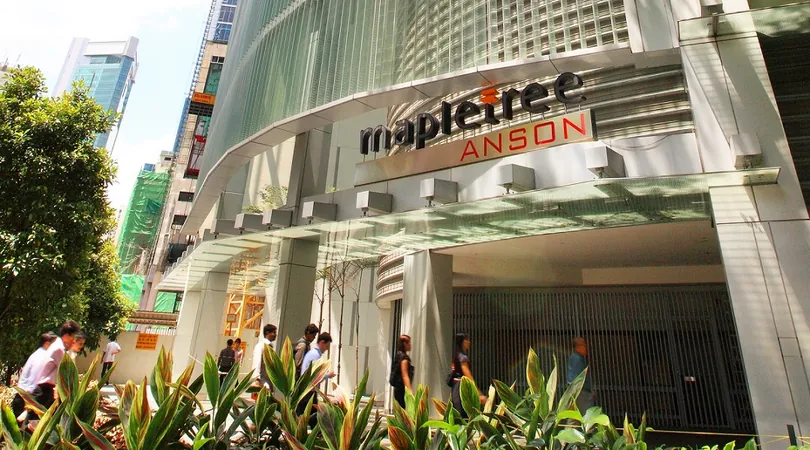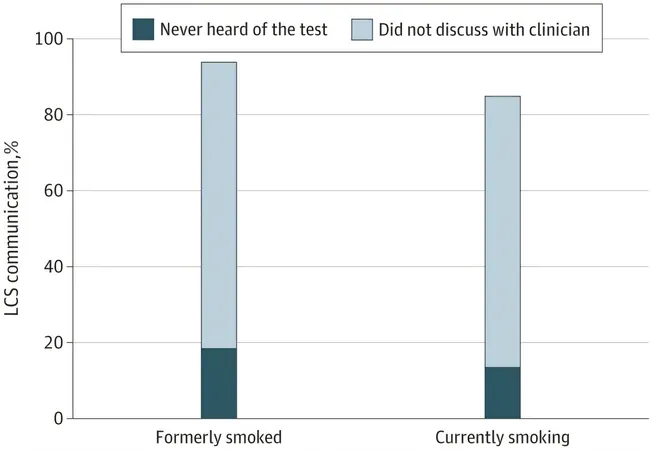
Analysts Remain Bullish on Mapletree Pan Asia Commercial Trust Despite Quarterly Setbacks
2024-10-25
Author: Wei Ling
Introduction
In a recent financial announcement, Mapletree Pan Asia Commercial Trust (MPACT) reported its second-quarter FY2025 performance, revealing a revenue of $255.6 million and net property income (NPI) of $167.7 million. This marks a decline of 6.1% year-over-year for revenue and 8.5% for NPI. The distribution per unit (DPU) also experienced a downturn, falling 12% year-over-year to 1.98 cents.
Reasons for Decline
Analysts Geraldine Wong and Derek Tan from DBS attribute these declines primarily to the divestment of Mapletree Anson in July, a lack of prior year’s property tax refunds, and unfavorable foreign exchange fluctuations. Moreover, the contribution from overseas properties notably decreased, particularly from key markets like Japan, South Korea, China, and Hong Kong, which collectively saw an 11% decline year-on-year.
Positive Indicators
On a more positive note, the analysts highlighted the resilient performance at Vivocity, fueled by reduced utility expenses and a 2.6% decrease in net financing costs due to proactive debt reduction measures. Additionally, Citi analyst Brandon Lee pointed out that MPACT is experiencing favorable rental reversions in Singapore, particularly in Vivocity, which recorded an impressive rental reversion of 17.3% during the first half of FY2025, followed by other properties such as mTower/BofA HarbourFront and Mapletree Business City, achieving reversions of 8.8% and 2.5% respectively.
Analysts' Confidence
Despite recent challenges, Wong and Tan remain confident in MPACT’s long-term growth potential, suggesting that the current trajectory of the trust has not yet been fully appreciated by the market. They believe that a potential 100 basis points cut in interest rates could yield a notable 2.4% increase in FY2025 DPU.
Occupancy Challenges
Occupancy rates in MPACT’s overall portfolio reported a dip to 90.3%, a decrease of 3.7 percentage points quarter-over-quarter. This decline largely stems from performance issues in overseas markets. In Japan, occupancy fell sharply by 11.9 percentage points, while The Pinnacle Gangnam in South Korea saw a 4.1 percentage point drop due to tenant turnover and retail market weaknesses. Meanwhile, Festival Walk in Hong Kong experienced a decrease of 3.2 percentage points, although improvements in leasing opportunities are anticipated in the coming months.
Traffic and Sales at Festival Walk
Interestingly, despite the decline in tenant sales at Festival Walk, which dropped by 12.5% year-over-year, traffic improved 6%—a promising sign for future sales recovery as ongoing enhancements to the property take shape.
Financial Stability
DBS analysts also reported a slight uplift in MPACT’s gearing to 38.4%, alongside stable debt costs at 3.56%. This suggests a solidified balance sheet post-divestment of Mapletree Anson. Wong and Tan remarked that MPACT’s interest coverage ratio now exceeds three times. They expect potential future asset divestments to further align MPACT's portfolio with growth opportunities.
Strategic Repositioning
However, in a strategic repositioning, DBS has decided to remove MPACT from its list of dividend picks due to the weaker-than-anticipated quarterly results. The analysts predict the unit price could react negatively, with expectations of a decline toward $1.34 in the near term as the trust navigates through ongoing market uncertainties ahead of its next quarterly update.
Conclusion
As MPACT ventures deeper into FY2025, its strategic realignments and the possibility of appealing opportunities amid an evolving market landscape make it a focal point for investors keeping a keen eye on recovery trajectories within the sector.



 Brasil (PT)
Brasil (PT)
 Canada (EN)
Canada (EN)
 Chile (ES)
Chile (ES)
 España (ES)
España (ES)
 France (FR)
France (FR)
 Hong Kong (EN)
Hong Kong (EN)
 Italia (IT)
Italia (IT)
 日本 (JA)
日本 (JA)
 Magyarország (HU)
Magyarország (HU)
 Norge (NO)
Norge (NO)
 Polska (PL)
Polska (PL)
 Schweiz (DE)
Schweiz (DE)
 Singapore (EN)
Singapore (EN)
 Sverige (SV)
Sverige (SV)
 Suomi (FI)
Suomi (FI)
 Türkiye (TR)
Türkiye (TR)